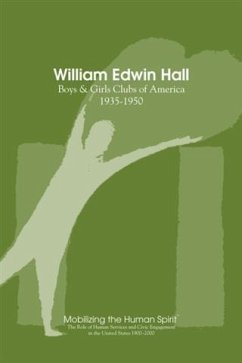Typical of the attempts to deal with troubled city children was the Orphan Train Movement, sponsored by the Children's Aid Society and the New York Foundling Hospital. As cities grew, a mass relocation system was developed to deal with poor children - some orphans, some neglected, some abandoned. Between 1854 and 1929, the Orphan Train carried approximately 200,000 children to new homes on farms in the Midwest. Some became part of loving families, but many were treated as slave labor. This was not an adequate solution to the needs of thousands of slum children.
There had to be a way to improve the quality of life for poor children - somewhere to go after school, someone to provide activities, and some way to give hope to needy boys. Originally the emphasis was on boys, because it was believed that their boisterous natures would lead them into trouble.
The idea of Boys' Clubs did not start as a national program. It was a grassroots movement started by individuals in various communities each of whom saw a need and did something about it. These men and women were the foundation upon which the Boys' Clubs were built.
William Edwin Hall's family was a prominent one. His father, J.K.P. Hall, was a well-known state senator, lumber baron, lawyer, entrepreneur, and civic leader in Elk County, Pennsylvania. William Hall never forgot where he came from, and in 1923, he gathered together the St. Marys civic leaders and proposed a Boys' Club for the town.
William Hall made a number of vital personal contributions to this project. The club needed a headquarters. He had an answer to this problem. Right in the center of town was an old building that belonged to the Hall family and their business partners, the Kauls. The two families made a donation of the original Hall & Kaul Company Store building, and the St. Marys Boys' Club had a home. The club needed a leader. Again, Mr. Hall took action. He recruited Harry "Major" Brock and moved him from New York City to St. Marys to direct the new club and its 231 original members.
Always a volunteer, William Hall lent his business acumen, influence, and passion to charting a course that built and guides the Boys & Girls Clubs of America today.
Dieser Download kann aus rechtlichen Gründen nur mit Rechnungsadresse in A, B, BG, CY, CZ, D, DK, EW, E, FIN, F, GR, HR, H, IRL, I, LT, L, LR, M, NL, PL, P, R, S, SLO, SK ausgeliefert werden.









